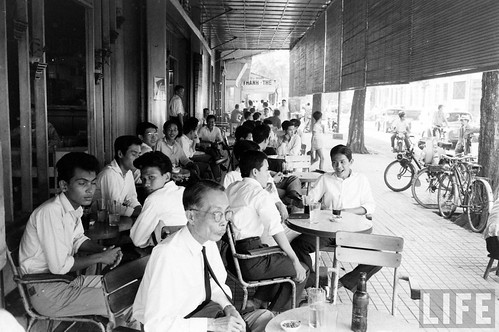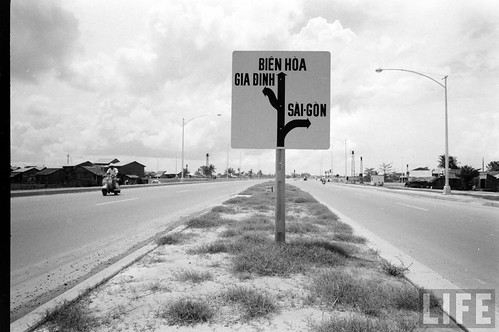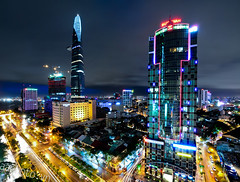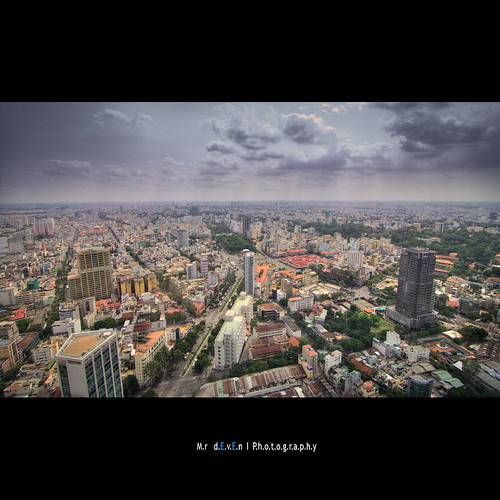HCMC
UPDATE: Startup Weekend Ho Chi Minh City 2012 is happening this weekend, starting tonight (Friday September 14) and commencing on Sunday the 16th. The "hacking" venue is The START Center For Entrepreneurs on Nguyen Thi Minh Khai, and final presentations and judging will be at Intercontinental Hotel. This year again I'll be a coach/mentor for the aspiring young entrepreneurs.
--
If you missed it, a few weeks ago the global Startup Weekend competition came to Ho Chi Minh City (which we all know is Saigon). There have been a number of such startup idea pitching competitions in both Saigon and Hanoi recently. I was able to take part in StartupWeekend here in the capacity of a mentor. This meant I could walk around to each team while they were working on their ideas and give suggestions. Suggestions were not so much about the core idea, which was already set, or how to legally incorporate, which was too early, but how to strengthen the business case for the idea, improve implementation, create a better presentation (presentation is seriously important), and suggest alternative markets and competitors which they may not have been aware of.
The event takes place over 54 hours (a weekend starting from Friday night) in which first ideas are pitched, then filtered into the most popular ones. In the end there were about a dozen ideas which the initiators could then gather team members from those whose ideas weren't chosen or came just to join a team.
In the end, these teams gave presentations before a live audience (including representatives from the media). I didn't see much coverage of the actual pitches of the event so I'd like to record them here.
Read the rest of this article...This past weekend was the third annual Saigon MobileDevCamp held at Bach Khoa University. Although I'm mainly a web developer, as the event was billed as a brother to BarCamp, I decided to go and check it out, meet some people, support my friend Dan, and see if anything from the event could be applied to the upcoming BarCamp Saigon on December 11th.
Like BarCamp, the venue is a local university. However, the quality of facilities between a regular Vietnamese university like Bach Khoa and a foreign-operated campus like RMIT are on a quite different level. Most rooms were without air conditioning and became quite hotter than I'm accustomed to. In the morning there were a number of sessions on developing mobile apps (I checked out a session on PhoneGap but missed the Unity 3D session). In contrast to the BarCamp ideal, guest speakers were invited to give sessions which were planned and scheduled beforehand. Topics were confined to the "mobile development" theme.
After lunch, the main event would be a 24-hour coding competition. As I was already waking up far earlier than usual to attend the conference which I hadn't even properly registered for, I had no intention of joining the hackathon but I would eventually be overcome by my friend Cong's excitement for Doing Things.
So that's it. We lost. We learned some lessons.
1. Be one of the first to present if you can.
2. Don't single out and alienate judges.
3. Don't build clean, well-architected software with maintainable code. In real life, this matters. For this competition, it doesn't.
The greatest tragedy perhaps (besides not winning) was that the presentations were all made in private with the judges. Having groups present their apps for everyone to see, or at least putting them somewhere online, would have been the BarCamp way. As we didn't receive any feedback or anything from the judges, it would have been nice to share what we all worked on for 24 hours (multiplied by nearly 100 people) and be able to learn from others' experience. Even if there wasn't time for all to present, I don't think I was the only one interested in seeing at least the demos from the winners.
- tomo's blog
- Login to post comments
- Comments

Looking at photographs of pre-1975 Saigon always make me wonder how differently things could have turned out had South Vietnam and North Vietnam remained separate countries. Would South Vietnam be as developed, modern, and affluent as South Korea is today compared to the starving citizen-prisoners of the Hermit Kingdom? If you've seen old photos of both Hanoi and Saigon you'll notice that even then Saigon was much more modern, cosmopolitan, and affluent compared to Hanoi.
In some ways, today we haven't really changed all that much since 1975, if you ignore the forward and backwards steps in the two decades after the war ended. The streets are still recognizable, mostly they've just changed names. Freedom has been replaced with Revolution. The black and white renditions of wooden cafe seats are even nicer than the red or blue plastic chairs I'm often in today.
Anyways, I've been looking over the 245 photos of 1961-era Saigon scanned in from Life magazine all weekend. I hope you enjoy as much as I did, even if loading them takes awhile.
A map shows the train used to terminate at Ben Thanh market. Saigon had grade-separated highways back in 1961.

Saigon.

Last week I was interviewed by Sketch Magazine, a monthly publication for Vietnam's Japanese community. So the September issue will feature a little something of my thoughts on living in Vietnam from a foreigner or Viet Kieu perspective.
One question that came up was: How did I end up in Vietnam? And why?
This is a question that's pretty commonly asked in the expat community. Nobody chooses where they were born but we expats all had some say in the foreign country we moved to. I traveled around North America, Europe, Asia, and some of Latin America before deciding I wanted to live somewhere in Southeast Asia, finally settling on Ho Chi Minh City.
When I ask others how they ended up here I get a variety of answers. You could split them into "planned" and "accidently". Those who ended up here accidently stayed because of:
- a girl (often now an ex-)
- came on holiday and became addicted to cheap beer
- came for school and decided to stay (a lot of Germans, Koreans, and Australians)
Others come here due to Vietnamese blood relations, and some come specifically for the business opportunities. And then there are the true expats, the ones who were sent here or came to work for a specific job. Traditionally, they would get a fat expat compensation package with housing allowances (thus driving up housing costs for all) and other perks, but this is changing.
So what do those expats who didn't come here with a job in hand already do?
1. Freelance. With Vietnam connected to the world via internet (barely, sometimes), many of us with creative skills such as programming or writing can continue to work for clients back home. Due to the much lower cost of living compared to Western countries, one doesn't need to work as many hours or maintain as many clients as before.
2. Find a job. This is a bit harder since there may not be the breadth of positions available to match your specific work experience. Having a PhD in some applied science may be worthless here. Nobody may have heard of the university you thought was famous. But most people I know eventually get a real job here (ignoring survivorship bias).
3. Make your own job. This could be by starting a company, something which is within the reach of most foreigners here, whereas it would have been a highly risky use of savings back home. Others shop their skillset around to companies who might not have had a position open if you can make them realize you are the solution they just weren't looking for.
4. Teach English. This is what people do while they are in the process of #2 or #3. Some people do this for years. Teaching English in Vietnam is the easiest way to make decent money in Vietnam, assuming you're from the US, the UK, Canada, or Australia/New Zealand (but they also hire good English speakers from the Philippines, Europe, and other countries). Teachers are in high demand and salaries are often more than you'd make back home. Teachers don't even need high school degrees, much less college degrees. Some English teachers find a school before coming here, but it's absolutely not necessary. The situation is similar in neighboring countries like Cambodia and Thailand. But with low cost of living and high salaries, Vietnam is probably one of the best countries to come and teach English in.
That covers the where, the what, and the why. But how? It used to be quite easy for most Westerners to stay in Vietnam on a 6-month business visa without actually having any business here. They've since cracked down a bit but it's still possible and quite common to stay on a 3-month tourist visa renewed multiple times. The laws on the book (not so much in practice) are always changing though, so more on that next time.
- tomo's blog
- Login to post comments
- Comments
From the top of Saigon's tallest building, the Bitexco Financial Tower. This is what the 200,000 VND ticket to reach the SkyDeck gets you. Y'all can thank me for saving you 200K! Click for higher resolution, and more photos from Mr. dEvEn.
- tomo's blog
- Login to post comments
- Comments
- « first
- ‹ previous
- 1
- 2
- 3

Recent comments
1 year 11 weeks ago
2 years 3 days ago
2 years 1 week ago
2 years 3 weeks ago
2 years 19 weeks ago
2 years 19 weeks ago
2 years 19 weeks ago
2 years 19 weeks ago
2 years 19 weeks ago
2 years 19 weeks ago